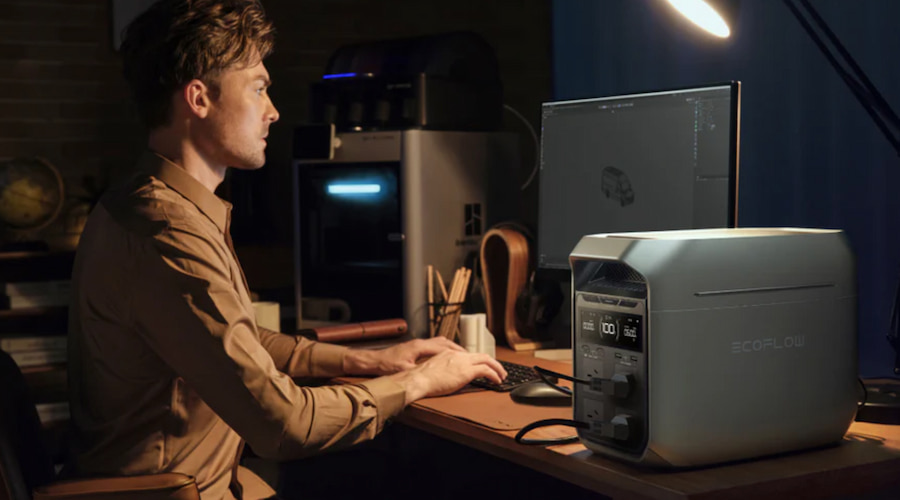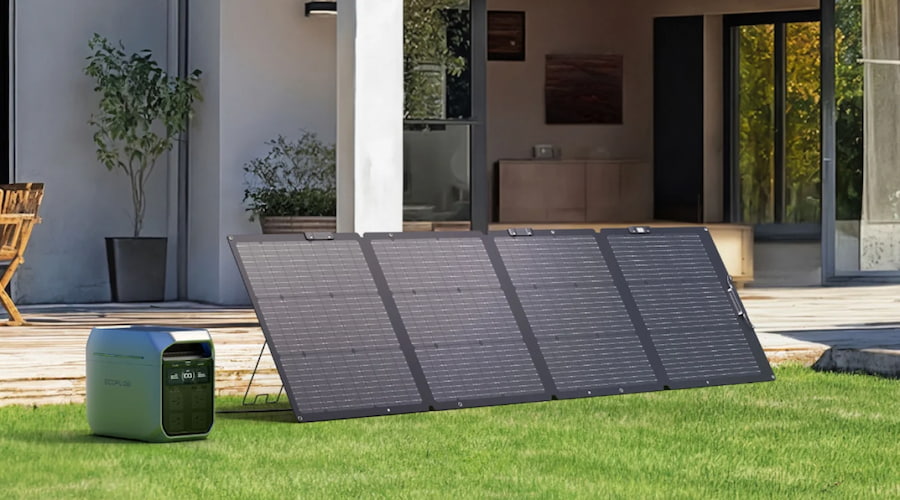Power Outage Newcastle: Causes, Updates, and How to Stay Prepared
Experiencing a power outage Newcastle can be more than just an inconvenience; it can disrupt your daily life, especially when unexpected. Recent events, like the severe weather brought by ex-Tropical Cyclone Alfred, have highlighted how vulnerable our region can be to sudden blackouts.
While Newcastle was fortunate to escape the worst of Alfred’s impact, nearby areas in northern New South Wales weren’t as lucky, with thousands of homes left without power due to fallen trees and damaged power lines.
Understanding what causes these outages, how to stay informed during such events, and steps you can take to prepare can make a significant difference in how you cope when the lights go out. And in this guide, we’ll break it all down for you.
Common Causes of Power Outages in Newcastle
Newcastle electricity outage can happen for all sorts of reasons and knowing what’s behind them can help you make sense of the sudden blackout. Here are some of the most common causes of power outages:
Severe Weather Events
Newcastle’s coastal position means we often face heavy storms, especially in the warmer months. Strong winds, torrential rain, and lightning can bring down power lines or trees, damage infrastructure, and cause localised blackouts. Events like ex-Tropical Cyclone Alfred have shown just how disruptive severe weather can be — even if Newcastle avoided the worst of it.
Equipment Faults
Like any system, parts of the electricity network can break down. Faulty transformers, damaged cables, or equipment failures — especially during peak demand — can all trigger unplanned outages. These issues might affect just a few homes or an entire suburb, depending on where the fault occurs.
Planned Maintenance
Sometimes, power needs to be switched off so our electricity distributor Ausgrid can safely carry out upgrades or repairs. These planned outages are usually scheduled in advance, and you’ll often get a notice in your letterbox, email, or SMS.
Accidents and External Damage
Unexpected things like car crashes into power poles, construction damage, or even curious wildlife (yes, possums and birds!) can interrupt power supply. These kinds of incidents can be tricky to predict but are more common than you might think in busy or built-up parts of Newcastle.
Bushfires
While less common in central Newcastle, bushfires in nearby regions can impact the wider electricity grid. Power might be cut as a precaution during high-risk fire days, or as a result of fire-damaged infrastructure — especially in more rural or bush-adjacent parts of the Hunter region.
How to Check for Live Power Outage Updates
When the lights suddenly go out, Ausgrid is your go-to source for real-time information on power outages in Newcastle. Here’s how you can stay informed:
Visit the Ausgrid Outage Map
The Ausgrid Outage Map shows real-time updates on current power outages NSW map near Newcastle NSW, including:
Affected suburbs and streets
Estimated restoration times
If you prefer a text view, there’s also a convenient Text Version of both planned and unplanned outages.
Look Out for SMS Notifications About Planned Outages
If you’re the primary electricity account holder and your electricity retailer has your current mobile number, you’ll automatically receive an SMS notification from Ausgrid for any planned power outages affecting your property. These messages are usually sent at least four days in advance, giving you time to prepare.
Contact Ausgrid Directly
If you need further assistance or want to report hazards like fallen power lines:
Emergency and Faults: Call 13 13 88 (available 24/7)
General Enquiries: Call 13 13 65 (Monday to Friday, 9:00 am to 4:30 pm)
Follow Ausgrid on Social Media
For timely updates, especially during widespread outages or severe weather events, follow Ausgrid's official social media channels:
X (formerly Twitter): @Ausgrid
Facebook: @Ausgrid
What to Do During a Power Outage
Experiencing a power out in Newcastle can be unsettling, but knowing the right steps to take can help you stay safe and minimize inconvenience. Here’s what to do during an outage:
Stay Calm and Check the Cause
First things first: check if the outage is affecting just your home or the whole street. If your neighbours still have power, it might be an issue with your switchboard or safety switch.
If it looks like a wider outage, head to the Ausgrid outage map on your phone (if you’ve got reception) or call 13 13 88 to check if it’s already been reported.
Ensure Safety First
Unplug Appliances: Disconnect sensitive electronics and appliances to protect them from potential power surges when electricity is restored. Keep one light switched on so you’ll know when power returns.
Avoid Fallen Power Lines: If you come across downed power lines, stay at least 8 meters away and report them immediately to Ausgrid.
Use Alternative Lighting: Opt for battery-powered torches or lanterns instead of candles to reduce fire risks.
Preserve Food and Water
Keep Fridge and Freezer Closed: Minimize opening refrigerator and freezer doors to maintain cold temperatures. A closed fridge can keep food cold for about 4 hours, and a full freezer can hold its temperature for up to 48 hours.
Monitor Food Safety: Perishable items like dairy, meat, and seafood should not remain in temperatures between 5°C and 60°C for more than four hours. When in doubt, it's safer to discard questionable items.
Stay Informed and Connected
Use a Battery-Powered Radio: Stay updated on news and emergency broadcasts, especially during severe weather events.
Conserve Mobile Battery: Limit phone use to essential communications to preserve battery life.
How to Prepare for Future Outages
Power outages can strike when you least expect them, but being proactive can make them a lot easier to manage. Here’s how you can prepare for power outages in Newcastle:
Put Together an Emergency Kit
Having an emergency kit ready means you won’t be scrambling in the dark. Here’s what to include:
Battery-powered torch or lanterns (avoid candles if possible)
Spare batteries
Portable power banks for phones
Bottled water and non-perishable snacks
First-aid supplies
A battery-operated radio to stay updated on weather alerts and news
A printed list of emergency contacts
Keep your kit in a spot that’s easy to access — and let everyone in your household know where it is.
Prepare Your Home
A little preparation around the house can go a long way:
Know where your circuit breakers and safety switches are located.
Install surge protectors to help shield electronics from voltage spikes.
Trim trees near powerlines (using a qualified professional) to reduce the risk of storm-related damage.
Keep your fridge and freezer clean and organised so food stays cooler longer during an outage.
Invest in Backup Power Solutions
If you live in an area that’s prone to outages — or rely on power for medical equipment or working from home — having a reliable backup power source can make a huge difference. There are a few options:
Traditional emergency generator for house (Petrol or diesel): Great for powering essential appliances, but make sure they’re used outdoors in a well-ventilated area to avoid carbon monoxide build-up.
Uninterruptible Power Supplies (UPS): These provide short-term backup power for devices like computers or modems.
Battery home backup generator: These are also called portable power stations, often storing enough energy to run your essential devices for hours or even days. They are more eco-friendly, versatile, quieter, and can be topped up using either your wall outlet or solar panels.
One standout option for homes in Newcastle is the EcoFlow DELTA 3 Plus Portable Power Station. With a base AC output of 1800W (and up to 2400W using X-Boost technology), it’s capable of powering everything from your fridge and computer to heavier appliances like kettles, hair dryers, or even ovens.
What really sets the DELTA 3 Plus apart is its fast response time — during a blackout, it automatically kicks in within 10 milliseconds, providing uninterrupted power to sensitive devices like desktop computers, and NAS servers. That means no data loss, no downtime, and no stress.


The battery starts at 1024Wh and can be expanded up to 5kWh with compatible EcoFlow extra batteries, giving you flexibility depending on your household needs. You can also recharge it four different ways — AC wall charging, solar panels (up to 1000W), an alternator charger, or a mix of methods — making it ideal whether you’re at home or off-grid.
Despite its power, it operates at a whisper-quiet 30 decibels under 600W, making it perfect for indoor use, overnight use, or inside a tent. It’s also built tough — IP65-rated for resistance against water, dust, impacts, and fire, and it uses long-lasting LFP battery cells that offer up to 10 years of daily use (with over 4000 cycles to 80% capacity). Plus, it’s backed by a 5-year warranty for peace of mind.


Make a Family Plan
Family Communication: Establish how your household will stay in touch during an outage. Ensure everyone knows emergency contact numbers and has a way to communicate.
Evacuation Routes: Familiarize yourself with local evacuation routes and have a plan in place if you need to leave your home.
Special Needs: Consider family members who may have medical conditions requiring powered equipment. Plan for alternative power sources or relocation if necessary.
Conclusion
Power outages are an inevitable part of life in Newcastle, especially given the unpredictable nature of our weather. By familiarizing yourself with the common causes of blackouts, staying connected with Ausgrid’s outage notifications and real-time updates, and taking proactive measures to prepare, you can navigate these situations with greater ease and confidence. Whether it’s putting together your emergency kit or investing in a reliable backup power source like EcoFlow’s solar generators, a little planning goes a long way. So, stay informed and stay safe!
FAQs
How do I find out if there is a power cut in my area?
To determine if there’s a power outage in your area, you can visit Ausgrid’s Power Outage Map. This interactive tool provides real-time information on both planned and unplanned outages. If you don’t see your outage listed, you can report it by calling Ausgrid’s 24/7 emergency line at 13 13 88.
Can I claim for spoiled food after a power cut?
Yes, if you’re an Ausgrid customer and have experienced an unplanned outage lasting 12 hours or more, you can submit a claim for food spoilage through their online portal. Compensation amounts can vary, with reports indicating payments up to $250. Be prepared to provide an itemized list of spoiled items and their approximate costs. However, note that claims related to events beyond Ausgrid’s control, such as accidents and bushfires, may not be eligible for compensation.
How do I contact Ausgrid about a power outage?
You can call Ausgrid’s 24-hour emergency line at 13 13 88 to report power outages or electrical hazards. For general inquiries, contact Ausgrid at 13 13 65, available Monday to Friday, 9:00 am to 4:30 pm. You can also visit Ausgrid’s online Power Outage Map to check the status of outages in your area.